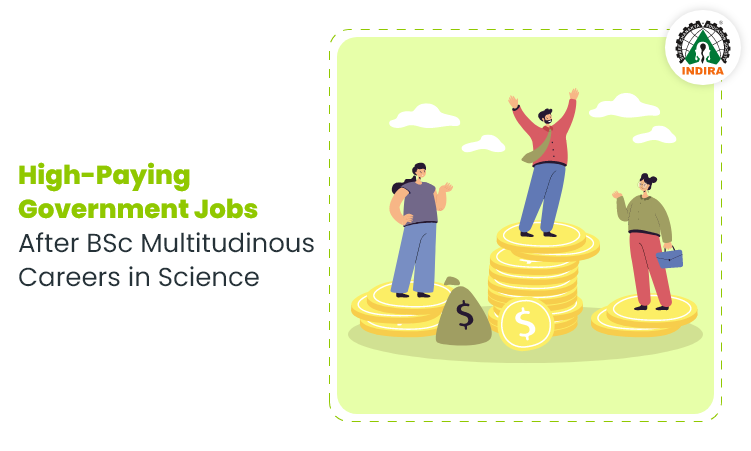In 10 easy steps learn how to choose a career.
Published on March 10, 2022| Leave a response

You’ll most likely be working in a vocation that doesn’t even exist yet in eight years, in the year 2030 – and no, we’re not talking about developing flying cars or building the world’s first time machine. Because the world of work is changing so quickly, you’ll need to figure out how to prepare for a future job role that you can’t predict.
Here are ten pointers to assist you in making the best employment choice possible.
1. Your passions should be determined
If you choose a profession that you enjoy, you will never have to work a day in your life. In essence, this expression responds to how to choose a vocation. Choosing a career that appeals to you might be a win-win situation. It not only improves your focus but also keeps you engaged in what you’re doing.
To find your region of interest, you can use the following methods:
- Consult your seniors and mentors for advice.
- Make a note of all of your hobbies and see which ones might lead to a work opportunity.
- Make a list of probable candidates who pique your interest.
2. Make a list of probable candidates who pique your interest.
While some people have no issue deciding what they want to do with their lives, many others find it hard to make the right choice.
So, if you’re unclear how to choose a career and have a diverse set of interests, consider the following:
- Make a list of all your interests and activities.
- Select the one that most closely matches your qualifications and education.
- Find out more about them to see which ones appear to be the most promising.
- You can also enroll in online programs or internships to obtain a deeper understanding of these fields.
3. Do a lot of research in these areas.
When it comes to choosing a career, a little research goes a long way. Knowing the possibilities of the activities listed above will help you narrow down your options to the one that seems most intriguing to you. So, research the one hobby you identified in step two in-depth.
4. Examine, rank, and remove the careers on the list.
After you’ve established a list of all of your interests and fields of interest, it’s time to organize them.
Start by assessing all of your possibilities of employment availability, demand, scope, growth patterns, and suitability for your educational background.
Then, before doing anything else, prioritize your best options.
Arrange the fields in decreasing difficulty order (starting with the ones that offer the most to those that offer the least).
Finally, eliminate the options that aren’t advantageous to you and reduce the number of possibilities available.
Limit yourself to one or two fields based on the study you did in the previous steps.
5. Make a list of jobs that would be a good fit for you.
Choosing a job, in particular, entails selecting not only an area of interest but also the jobs that appeal to you. For example, someone interested in digital marketing might be a social
media expert, while another might be an SEO expert, and so on. Make a list of all the roles available in the field you’ve chosen before going any further. Determine which one would be the best fit for you based on your skills, qualifications, and interests.
6. To make an informed conclusion, evaluate your experiences.
Making a career plan is a crucial step in figuring out how to choose a vocation. A career plan can help you figure out the profession you want to get into and makes the decision-making process easier. However, no plan can be built without first reviewing the foundation, therefore evaluating your strong suits and skills is vital. Examining all of your abilities, courses/education, and other criteria, and then deciding what is the best thing you can do based on those things, is the best way to go about it.
You can add all of your extracurricular activities if you’re a first-year student.
7. Make a list of the most important questions for yourself to consider.
The best way to ensure that you have circled in on the right answer to how to choose a career is to ask yourself the right questions.
Some of the questions you should ask yourself are as follows:
- Do you believe you’ll be happy working in this industry?
- Is the profession you’ve selected a good match for your skills and interests?
- What are the potential stumbling blocks for me?
- Is there anything I’ve done in the past that identifies me as a good fit for this position?
- Is there a backup plan in place in case this doesn’t work out?
8. Make SWOT analysis.
Conducting a SWOT analysis of your possibilities is one of the best things you can do while attempting to figure out how to choose a career.
A SWOT analysis is a great method for making well-informed and well-informed judgments in all facets of life, although it’s most typically used for business decisions.
It helps you recognize your strengths, weaknesses, opportunities, and threats before putting your ideas into action, as well as prepare for any potential highs and lows.
9. Always have a contingency plan in place.
Make sure you always have a Plan B on standby if you chose Plan A as your career path. This allows you to explore your options and can be quite handy in the case that your job goals do not pan out.
Select another field from the list of interests you created earlier in the process to construct a Plan B.
Take the second-best option and make a strategy for what you’ll do with it ahead of time.
10. Seek career advice from a professional.
At some point, you may seek professional advice in making career decisions. The most important thing you can do right now is get advice from a career counselor about your circumstances. A career counselor can assist people in achieving their goals through assessments and coaching.
Posted in: BA
Popular Blogs
How to use “Digital Body Language” to connect the virtual world.
February 5, 2022
Know About The Best Jobs After BSc In INDIA
July 25, 2022
Corona Crisis driving Retail to be Agile
January 27, 2022
Know How To Get Admission In BSc Courses After 12th
July 25, 2022













